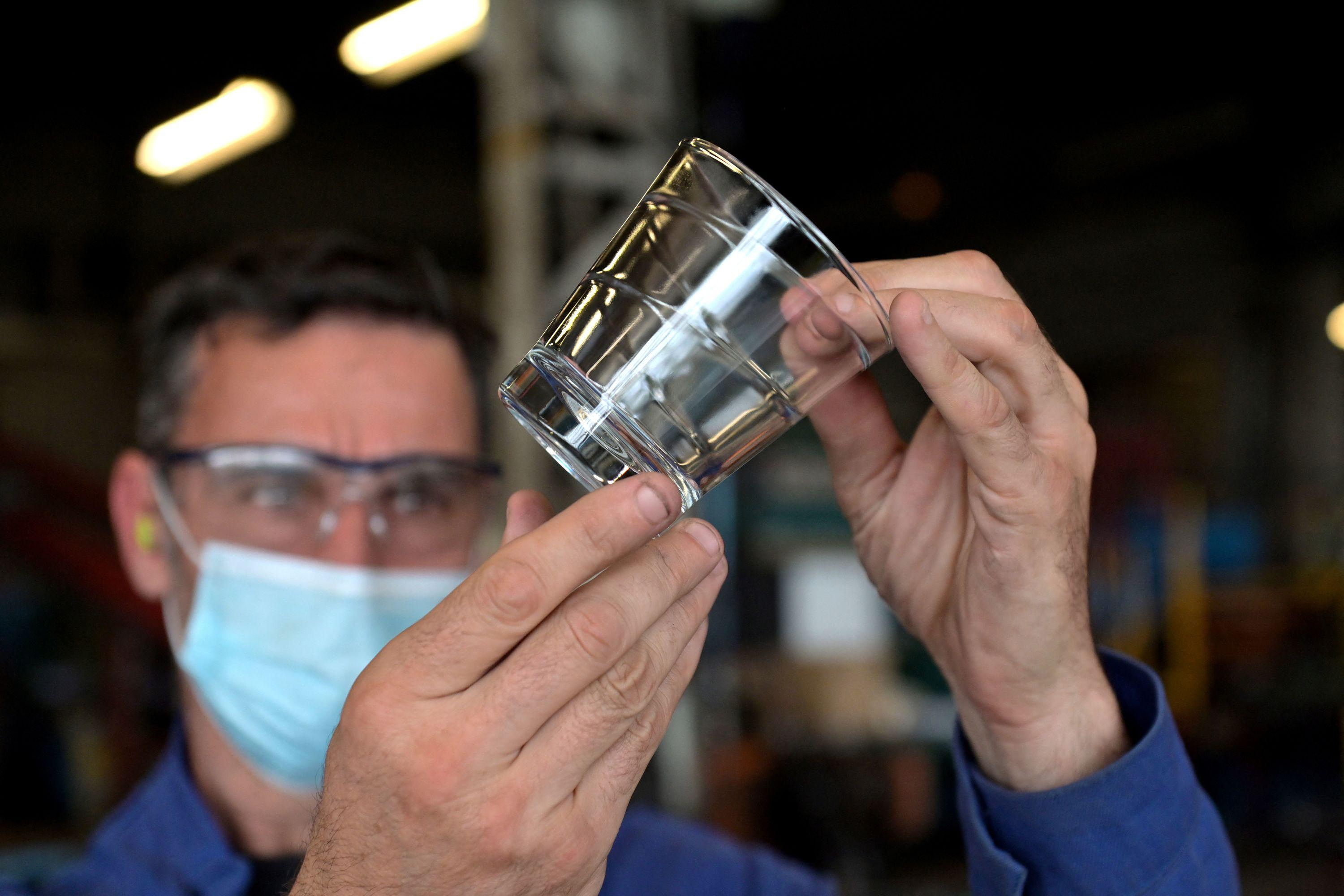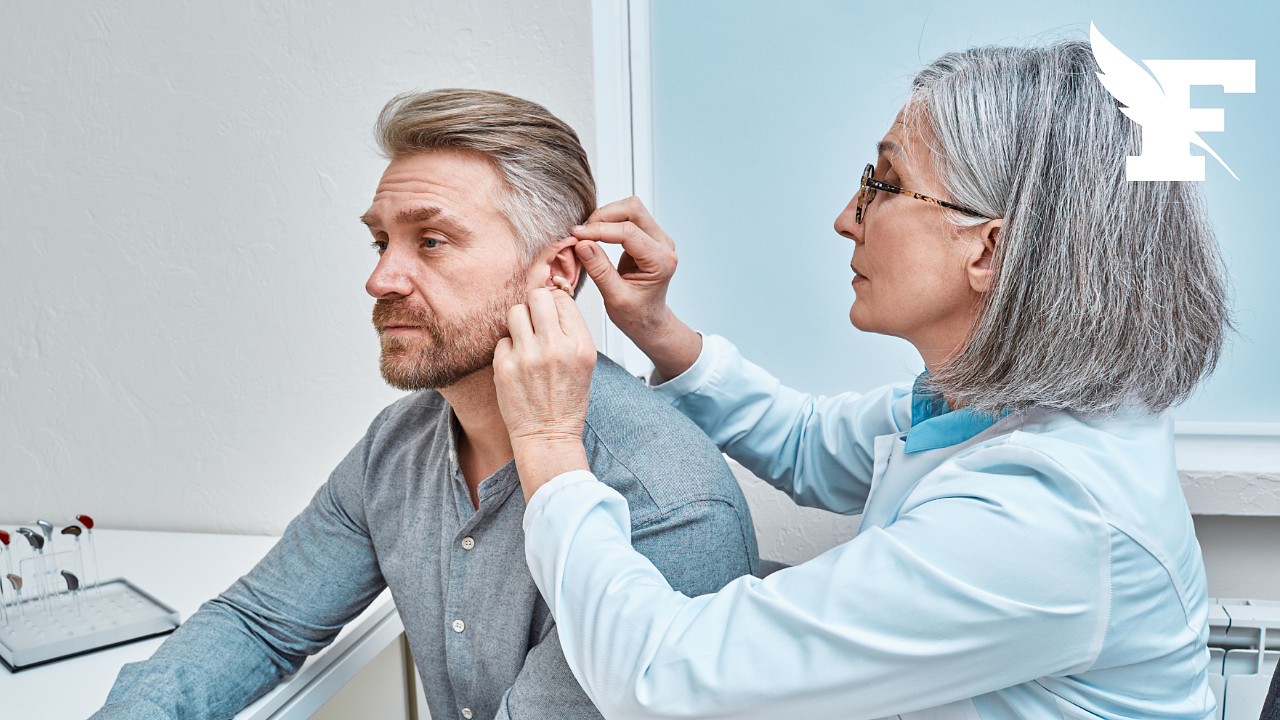Covid-19 is a breakthrough in medical technology. The mRNA technology in vaccines against the new coronavirus is the most advanced and basic.
Technology has been in this field for many years and there are constant advances, despite opposition and noise. These six words were first used by the medical community in 2012: 'Clustered Regularly Inspaced Short Palindromic Repeats'. They would be called 'grouped and frequently interspaced short Palindromic Repeats' in Spanish, but they are also known by the English acronym CRISPR.
It was discovered at the University of Alicante in the 1990s. Francisco Juan Martinez Mojica, a microbiologist, patiently analyzed genetic material from the archaea Haloferax mediterranei. This unicellular microorganism was found in Alicante's Santa Pola salt flats. Its genome contained repeated sequences of nucleotides (molecular 'building blocks' which make up DNA andRNA). Feng Zhang, Emmanuelle Charpentier, and Jennifer Doudna all supported this first step between 2012 and 2013. They used them to create a very simple, flexible and powerful tool that could edit any cell's DNA.
CRISPR was introduced to society in 2015 and has been considered the most significant scientific advancement of 2015. It allows the deciphering of repetitive sequences in the DNA of bacteria. This technique uses the Cas9 gene to cut DNA in selected areas. It is the one that has caused the most controversy since its invention.
CRISPRs can also be known as "generic scissors" because you can cut and paste the ends, inactivate the genes, insert DNA templates, and even cut and paste them. It can also be used in any situation that involves the modification of a genetic sequence. This is extremely useful for researching diseases and creating new drugs.
Human curiosity exceeded legal and ethical limits. He Jiankui, a Chinese scientist, genetically modified twins to lower the chance of their parents passing HIV to them. He was sentenced to three years imprisonment in China for illegal medical practice. The scientific community was unhappy because the gene editing technology was not well developed enough to ensure the safety of the girls.
The World Health Organization (WHO), after this difficult issue, opened a wide consultation. It has now produced the first recommendations for gene editing in humans, after two years of hard work. Tedros Adhanom says that gene editing has the potential to improve the ability to cure and treat disease. However, the full benefit will be realized if it is implemented for the benefit all people and not just to foster greater health inequity within and between countries. Ghebreyesus is the Director General of WHO.
Hereditary editing of human genome is a major concern of WHO. According to WHO recommendations, altering the human genome in embryos could be passed on to future generations and modify the traits of descendants.
Although the pandemic has caused some delays, it is now possible to set minimums for where you should move. Since gene editing has potential benefits for all, not just rich countries, the WHO experts had to include scientists, patient associations and spiritual leaders. .
The organization's latest document is available at the end of July. It details the benefits of genetic techniques in personalized treatment of diseases, including cancer. However, they also warn against the dangers of moving ahead in this area without ensuring that all processes are monitored.
CRISPR's biggest problem is ethics. Felix Recilla (director of the Institute of Cellular Physiology of UNAM), called the controversial Chinese experiment of 2018 unadmissible. He said that the embryos were healthy and had been modified using the CRISPR/Cas 9 technology, which caused a mutation in CCR5 gene to make girls more resistant to infection.
It would be illegal to conduct such a trial in Spain, which is a signatory of the Convention on Human Rights and Biomedicine. This convention prohibits modifications to the human genome that could be passed to offspring. However, countries such as China, Japan and the United States resisted the document. This limits its scope.
The WHO also recommends intellectual property, values and international collaboration. Dr. Soumya Swminathan, chief scientist of the WHO, stated that as global research continues to dig deeper into the human genome, it is important to minimize risks and harness science's potential to improve health for all people.
Their efforts coincide with the 20th anniversary celebrations of the Human Genome Project's completion. The scientific division of World Health Organization won't conduct an exhaustive review of its recommendations or the progress of countries to implement them until three more years. This examination will cover 18 months and will consider the evolution of genetic methods as well as the social impact they have had up until that point.

 Germany: abortions should be authorized up to 12 weeks, concludes a commission launched by Olaf Scholz
Germany: abortions should be authorized up to 12 weeks, concludes a commission launched by Olaf Scholz Knife attack in Australia: who are the two French heroes congratulated by Macron?
Knife attack in Australia: who are the two French heroes congratulated by Macron?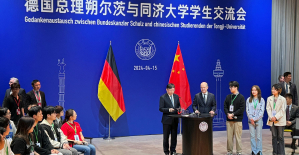 Faced with an anxious Chinese student, Olaf Scholz assures that not everyone smokes cannabis in Germany
Faced with an anxious Chinese student, Olaf Scholz assures that not everyone smokes cannabis in Germany In the Solomon Islands, legislative elections crucial for security in the Pacific
In the Solomon Islands, legislative elections crucial for security in the Pacific Covid-19: everything you need to know about the new vaccination campaign which is starting
Covid-19: everything you need to know about the new vaccination campaign which is starting The best laptops of the moment boast artificial intelligence
The best laptops of the moment boast artificial intelligence Amazon invests 700 million in robotizing its warehouses in Europe
Amazon invests 700 million in robotizing its warehouses in Europe Inflation rises to 3.2% in March due to gasoline and electricity bills
Inflation rises to 3.2% in March due to gasoline and electricity bills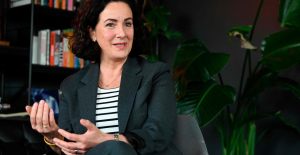 Against drug trafficking, the mayor of Amsterdam advocates the regulation of cocaine
Against drug trafficking, the mayor of Amsterdam advocates the regulation of cocaine Hachette Livre removes Isabelle Saporta from management of Fayard
Hachette Livre removes Isabelle Saporta from management of Fayard Where is the MSC Aries, the ship boarded by Iran?
Where is the MSC Aries, the ship boarded by Iran?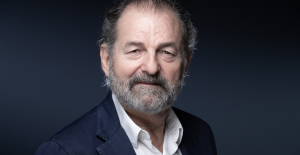 Denis Olivennes at Le Figaro: “CMI France discusses with Natacha Polony the future of Marianne”
Denis Olivennes at Le Figaro: “CMI France discusses with Natacha Polony the future of Marianne” 2024 Candidates Chess Tournament: Relive the Crucial Nepo-Gukesh Game
2024 Candidates Chess Tournament: Relive the Crucial Nepo-Gukesh Game Borgo, by Stéphane Demoustier: locked outside
Borgo, by Stéphane Demoustier: locked outside Release of hostages and immediate ceasefire: at the Venice Biennale, the Israeli pavilion resonates with Gaza
Release of hostages and immediate ceasefire: at the Venice Biennale, the Israeli pavilion resonates with Gaza Two Russian artists declared “terrorists and extremists” because of a play
Two Russian artists declared “terrorists and extremists” because of a play Skoda Kodiaq 2024: a 'beast' plug-in hybrid SUV
Skoda Kodiaq 2024: a 'beast' plug-in hybrid SUV Tesla launches a new Model Y with 600 km of autonomy at a "more accessible price"
Tesla launches a new Model Y with 600 km of autonomy at a "more accessible price" The 10 best-selling cars in March 2024 in Spain: sales fall due to Easter
The 10 best-selling cars in March 2024 in Spain: sales fall due to Easter A private jet company buys more than 100 flying cars
A private jet company buys more than 100 flying cars This is how housing prices have changed in Spain in the last decade
This is how housing prices have changed in Spain in the last decade The home mortgage firm drops 10% in January and interest soars to 3.46%
The home mortgage firm drops 10% in January and interest soars to 3.46% The jewel of the Rocío de Nagüeles urbanization: a dream villa in Marbella
The jewel of the Rocío de Nagüeles urbanization: a dream villa in Marbella Rental prices grow by 7.3% in February: where does it go up and where does it go down?
Rental prices grow by 7.3% in February: where does it go up and where does it go down? Europeans: the schedule of debates to follow between now and June 9
Europeans: the schedule of debates to follow between now and June 9 Europeans: “In France, there is a left and there is a right,” assures Bellamy
Europeans: “In France, there is a left and there is a right,” assures Bellamy During the night of the economy, the right points out the budgetary flaws of the macronie
During the night of the economy, the right points out the budgetary flaws of the macronie Europeans: Glucksmann denounces “Emmanuel Macron’s failure” in the face of Bardella’s success
Europeans: Glucksmann denounces “Emmanuel Macron’s failure” in the face of Bardella’s success These French cities that will boycott the World Cup in Qatar
These French cities that will boycott the World Cup in Qatar Bundesliga: Naby Keita suspended by Werder Bremen until the end of the season
Bundesliga: Naby Keita suspended by Werder Bremen until the end of the season Euro 2024: the Blues reveal their opponents for friendlies in June
Euro 2024: the Blues reveal their opponents for friendlies in June Cycling: De Marchi wins the 2nd stage of the Tour of the Alps
Cycling: De Marchi wins the 2nd stage of the Tour of the Alps Paris Olympics 2024: Joris Daudet (BMX) candidate to be French flag bearer
Paris Olympics 2024: Joris Daudet (BMX) candidate to be French flag bearer




